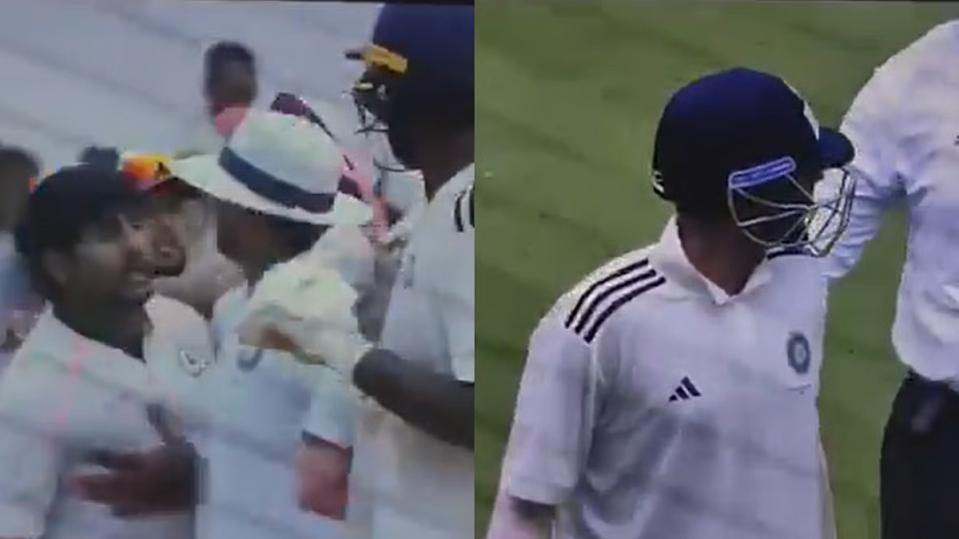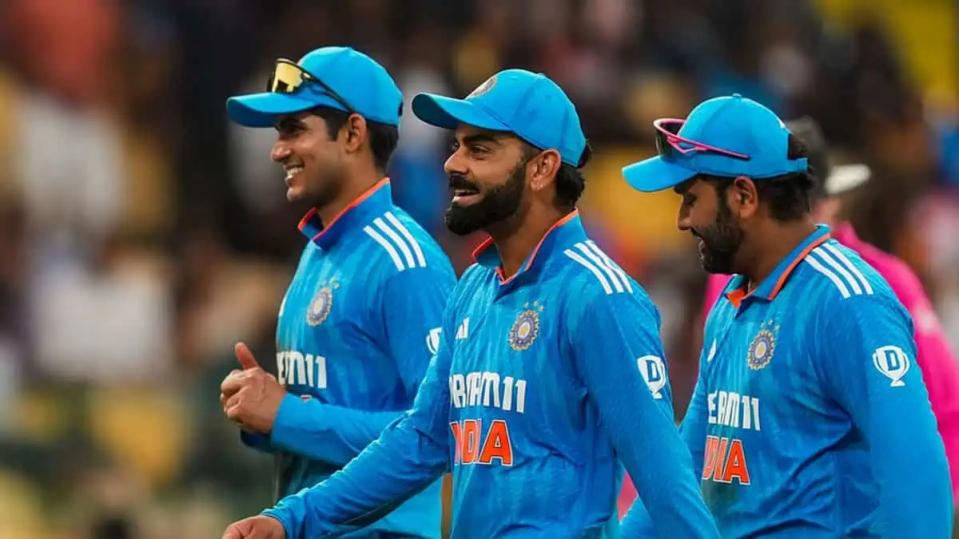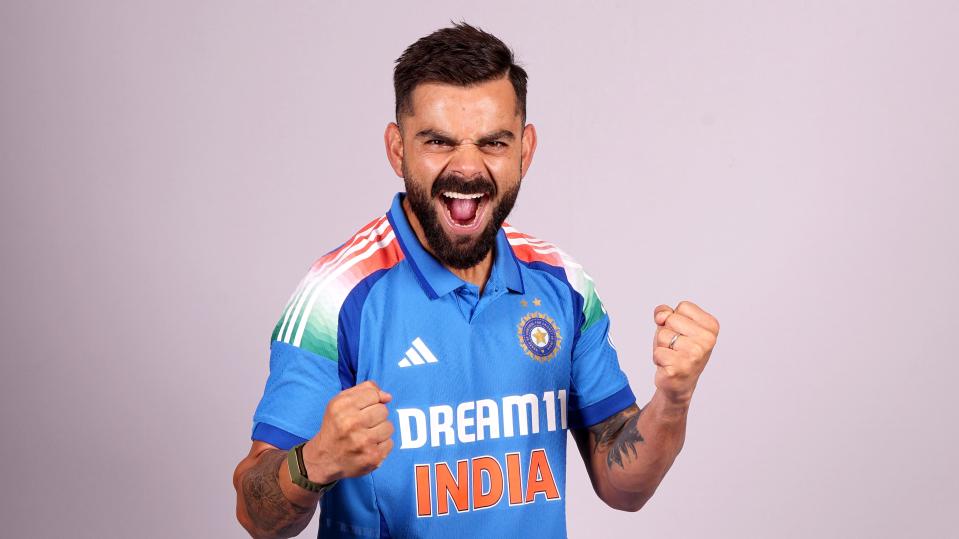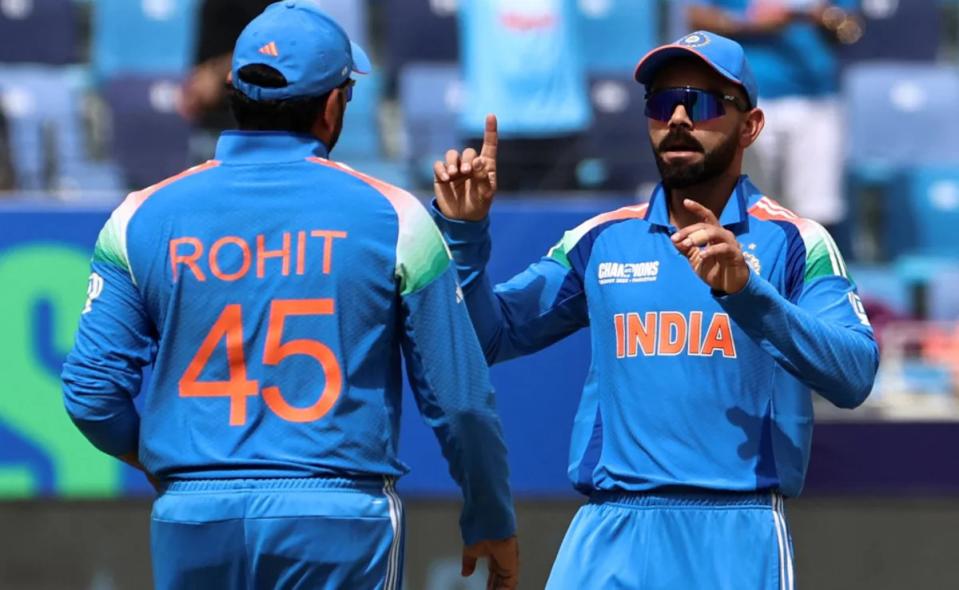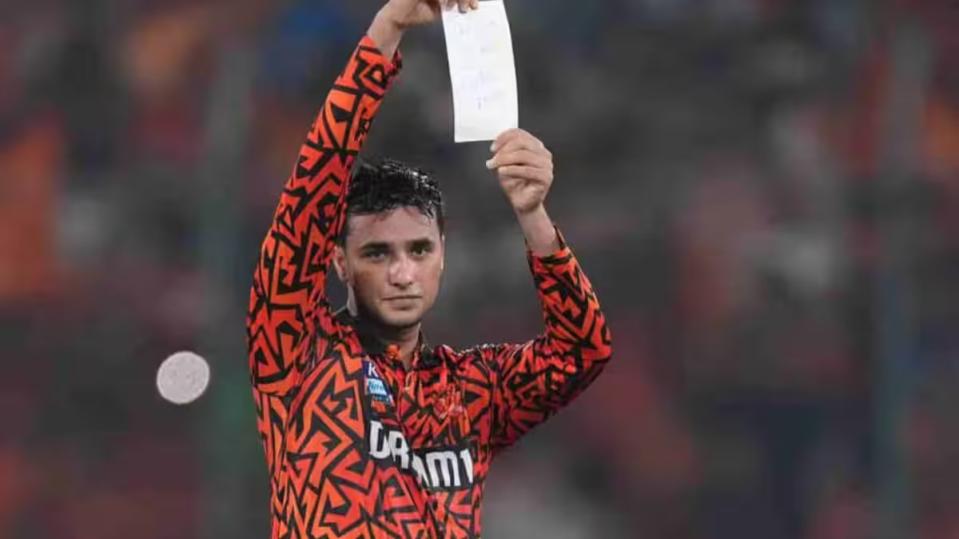To perform consistently in international cricket for 22 years and 274 days is not easy. Mithali Raj, the 39-year-old batter from Hyderabad, has come up the hard way to be the most successful Indian women's cricketer and one of the most consistent performers in world cricket. Some of her records in international cricket across all the three formats are amazing. The highest run-getter in Women's ODIs (7,805) as well the player who has captained in most Women's World Cup matches (28), Mithali is undoubtedly one of the all-time greats in women's cricket. She also held the record for the highest individual score in Women's Test for 19 months - 214 against England in 2002.
Mithali, who announced her retirement last week, talks exclusively to news18.com. Excerpts:
Have you come to terms that you are now a former international cricketer?
It has been a very long journey. I never felt it was that long because when you are in the journey, you don't feel how far you have come. Only when you finish the journey do you take some time to reflect on how far you have come. It has been a challenging, exciting, eventful journey, I'd say. If I have to say from where I started, where the sport was in the 1990s to where it is today, it has been a satisfying journey for me, to see the sport where it is, to leave it in a very good space. I have given it all. There is nothing that I regret other than a World Cup trophy.
Also Read: Mithali Announces Retirement From International Cricket
How tough was it to say 'enough is enough'? What triggered the moment to call it quits?
People say retirement is hard. That's what I came to believe until a few years ago. Something my dad has always told me, and which I understood over the last six-seven years, was, 'don't get attached too much because when you get attached to something, to give it away will be difficult'. I slowly started to detach myself. Of course, I was very passionate about my game. But, I never saw it as a 'forever'. At some point, it will stop, and he made it very clear to me. It was not difficult for me. People find a huge change from playing to not playing. I don't see any change in me.
As far as retirement now is concerned, I was thinking about it for two years because this World Cup was my swansong, which I made very clear. I had that clarity of thought in my mind. I did take time. Why the announcement was made now was that I wanted to deal with the disappointment of not being able to play in the 2022 World Cup semifinals. I wanted to deal with that emotion. As regards whether I wanted to give it one more series or play for some more time, I did not want to feel that emotion (of not making it to the World Cup semifinals) after I retired. Once I dealt with the disappointment of not making it to the semifinals of the World Cup, I went to the domestic T20 tournament.
I wanted to see if I still had the same eagerness to pick up the bat and play in the nets, play in a domestic tournament. I did not have it. At one point, the coach had to say to me to 'go and do some batting'. She literally had to push me into batting, which for years nobody did. Then I told her, 'if you have to push me into batting, it means I am done. I don't have it in me anymore'. When you get that feeling, you should not be pushing yourself. That is when I told the people close to me that I was not going to play anymore. It was just a matter of taking calls, sending mails officially.
Was it that you were not enjoying the game anymore? How could it quickly change within months, from the World Cup, where you were batting, to now, having been pushed to do some batting?
I didn't see it from an enjoyment point of view. It was the state of my emotional being. I was so focussed on the World Cup. Any challenge I faced, any obstacles I faced in the last two years, I was able to overcome because I had this goal, the World Cup was important, I had to prepare for the World Cup. Everything around me, I had made into the World Cup 2022. There was nothing else I was prepared for after that. I won't say I was not enjoying it, it was just that there was no motivation, there was no goal. I was always a goal-oriented person. You give me a goal and I would work very hard towards it. That would be my single-most focus. I didn't have anything else to focus on. I was in that state of mind. I also felt that after the World Cup, the team was going to build towards the next World Cup. It was right for me to move away now so that the selectors got time to work on the combination that they wanted.
How disappointing was the World Cup?
It was disappointing because the team worked hard. The BCCI worked hard to give us a couple of series against good sides in the last year or so. We were not able to find our rhythm, and even if we did, we were not able to be consistent with the rhythm.
How happy were you with the team selection for the World Cup? There were talks that a player of the calibre of Jemimah Rodrigues ought to have been picked for the World Cup and she might have made a difference.
I was happy with the selection of the team. The selectors have been following the performances of the players. And you pick players who are in form so that they continue the form into the World Cup.
Also Read: 'When You Find Yourself in the Middle of Chaos'-Mithali Raj On Fight With Ramesh Powar
You mentioned obstacles in the last couple of years. How did you overcome them and still keep scoring consistently?
I don't want to name the obstacles. I'd say things were very, very challenging since 2018 from a few directions. I could focus and could continue because I had a goal, that I had to do well in the World Cup, that the team had to do well in the World Cup. Sometimes, it became overwhelming. I always found a reason to refocus on what was important and what was the right thing to do, and tried to perform. Over the years, the belief that I was tutored, 'everything aside, performance is the only thing that will take you forward'. A lot of things have changed from what I was tutored in the 1990s to now with the change of generation and standard of the game, but one thing that has never changed now is that no matter who says what, you perform and pick yourself for the next game.
I always wanted my performance to talk. People sometimes say that I tell my side of the story. But I always believed that if I am there in the sport, it was because I was performing. And if I have to keep performing, I had to be in the best mental space. I can't be playing around with a lot many things and still go out and perform. I had to distance myself from a lot of things. That's my way of dealing with things.
Despite whatever has happened over the last couple of years, how were you still able to lead the side to the World Cup and keep that working relationship with the coach?
For me, he was the coach of the team. I will definitely communicate with him as the captain. If I am going to think about the differences, I would never be true to what I wanted to achieve. When I say I gave everything that I had, I wanted to be honest in stating that. That is why I, as captain, I made all the efforts that I could in the most honest manner to put across things that are important to the team, we communicated about the game, the strategy, the team combination, etc.
The communication between the coach and the captain has to be good. You cannot be incommunicado there and expect the team to respond to you. That is not going to happen because the girls look up to the captain, and the captain has to set an example. That is when you expect the team to go out there, perform and follow what you are telling them to do. In that sense, I had to be the person and behave the person that I want the players to be and that is the reason I made an honest effort to see that the relationship between the coach and the captain was most professional and that we stick to the goal and the mission of the team.
You were among the firsts to ask for a male coach more than 10 years ago. Are you happy with the way things have shaped up?
We have had male coaches since early 2017 starting with Tushar Arothe. In certain aspects, having male coaches helped the team. But we can still do much better. There are very good women coaches around. Hopefully, they get opportunities at the senior level in the future.
How did you develop the concentration levels? Almost everyone who has known you closely spoke of your supreme concentration levels.
With the ever-changing growth of international standards, the access to the facilities we had - earlier, we had to make do with what we had, so we created scenarios and used the circumstances to the best knowledge. With BCCI and the access to coaches, the knowledge expands. And you start using the knowledge to evolve in your own game. I used to get a lot of information through my interactions with a lot of people and see if I could include those in my game.
That's how I used to polish my game. In all of these, I always spent time to polish my fundamentals. As the game evolved, as you keep adding to your armoury, what a lot of people tend to forget is that a solid foundation gives you the stability in your game, and people revisited that only when they failed. I did not want that to happen to me. I didn't want to go through a failure to return to my fundamentals. I made sure to polish my skills everyday so that I didn't get stuck with failure for a long time. Thankfully and by God's grace, I never had a long low-phase.
How much of reading helped you in your concentration?
It helped me to deal with the jitters I felt before a game. It helped me in not being predetermined when I walked out to bat because sitting out and watching the game, you tend to form your opinion about the bowling, the ball moving, etc. Reading helped me walk in to bat without any apprehension. Reading also helped me to manage my emotions. There were times when I felt things were not under control. I felt emotions draining me, it could be anger, irritability. I am not someone who is expressive. I keep the emotions to myself. There has to be an outlet. Books have helped me manage my emotions, maintain my composure in the most challenging situations.
Looking at your long list of records and achievements, which one gave you the most satisfaction?
The one when I broke Charlotte Edwards' record to become the highest run-getter in Women's ODIs during the 2017 World Cup. To do it in fewer innings gave me immense satisfaction. Also, being the leading run-getter in WODIs with 7,805 runs is something that I am pleased about. (Mithali reached 5,993 runs in 164 innings in her 183rd ODI whereas Edwards finished with 5,992 runs in 180 innings from 191 matches.)
In recent times, people have been talking about your strike rate and that you ought to have been scoring at a faster rate. What does strike rate mean to you?
Strike rate is important. But, batting happens as the match goes along. Batting is according to the situation on the field. If you are chasing 300 and if you are telling strike rate is not important, I won't agree. There, strike rate is important because the asking rate is higher. If you are chasing 200 and the team has lost five wickets, you can't expect the batter to keep up the strike rate. You have to cross the finish line. How you do it is up to the batter. You go out there, read the situation. If the earlier batters had given a good start and you go and slow it down, I don't agree.
Which knocks that you played gave you the most satisfaction?
All the ones that I played in pressure situations and bailed the team out have always been dear to me because I know what sort of a pressure situation I walked in. I can't really pick one innings.
One of the knocks that immediately comes to mind is the 2005 World Cup semifinal against New Zealand. I was struggling with my knee injury, I scored 91. We lost some early wickets. That was one innings that gave me satisfaction. I was dealing with knee pain, was the new captain of the Indian team, a World Cup semifinal match against the then reigning world champions (India won by 40 runs to enter the final).
Another is in the 2017 World Cup, the match against New Zealand. We were nowhere near in terms of net run rate. For us, it was important to win to enter the semifinal. I got 109 in that match (India won by 186 runs to make the semifinals).
Also, the Test against England in 2014 in which we had eight debutants. I scored 50 not out in the second innings, chasing 181 target. We had lost all the batters and I was playing with Shikha Pandey and we still had 66 to chase. We shared 68 unbroken stand and won the Test by six wickets. It was a challenge that I enjoyed and one of the innings that's dear to me.
Who were the players you admired?
I played across generations. From the senior generation, it's Cathryn Fitzpatrick from Australia, Katherine Brunt of England from the next generation and Marizanne Kapp is one good bowler from South Africa. My senior, Karen Rolton from Australia has been my favourite. From the current lot, Meg Lanning of Australia and South Africa's Laura Wolvaardt are good.
How good is the current crop of youngsters? You said in your retirement statement, "...the team is in the capable hands of some very talented young players and the future of Indian cricket is bright."
With the inception of the Challenger Trophy and central contracts, a lot many girls have taken to the sport as a profession and not as a hobby. The very mindset of taking it as a profession instils in you many things like being serious, working hard, trying to figure out techniques to improve your game. They are also keen to find ways where they can play for good teams and play more matches. Take the example of Kiran Navgire, who did not find a place in the Maharashtra team, She found another way to play domestic cricket through another team. She found the way to climb the ladder.
I am sure the women's IPL is coming soon. These Challengers are unearthing a couple of talents. The women's IPL will unearth a lot more talent. That will give a bigger pool of players for the selectors to pick from. It will also make a good case for the second string and there will be good competition. Things will look very good for women's cricket.
What should Indian women's cricket be doing to improve further, say reach the levels of Australian women's cricket?
We have already started. There is an under-19 women's World Cup coming up. Tours are scheduled. Once under-19 starts, whoever plays there will graduate to the senior level as better players. Between U-19 and senior levels, there has to be an emerging tour or India 'A'. This helps in steady progress. From under-19 to India 'A' to seniors is the natural progression. If that happens, there will be a constant supply of players rather than missing out for three-four years and suddenly having a spurt of players. You will also find adequate replacements.
Are we ready for the women's IPL?
I think we are ready for the women's IPL with five or six teams. If need be, you can change the rules a little bit to allow five overseas players instead of four for a couple of years. You want to start somewhere. As it gets going, you will find ways to add up teams. We are good for five-six teams.
How do you want to be associated with the game?
I don't know. I have not given it a serious thought. Commentary offers came along even when I was an active player. Administration is something I am keen on. Being in the fraternity for long, I understand what the team requires, what the players want. I can use my experience there. Mentoring is another option. Let's see what opens up for me. Right now, I am taking some time off. I want to get off the pedestal of a player, which is important when you get into another role.
What do you do with your kit?
I have already started to distribute most of them. I am not much into keeping things. Maybe a few bats I keep with me, the bat with which I scored 214 in a Test, the bat with which I reached 6,000 ODI runs. I am someone who gives away things. I am not much attached to my bats. I have gone through phases where I have played with one bat for one year. If anyone is in need of a bat, why not help them? Some youngsters say, 'Didi, I scored runs with your bat'. I say, 'bat is the same, your game is good'. They feel there is some magic in the bat.
What kind of a person is Mithali Raj off the field?
I have more time to read now. I have got into some pencil sketching. I always love to sketch but never got the time to do it. I could not sketch during tours. I did sketching during the lockdown.
EXCLUSIVE: 'I Slowly Started to Detach Myself' - Mithali Raj on Retirement
To perform consistently in international cricket for 22 years and 274 days is not easy. Mithali Raj,
Created - 3 years ago
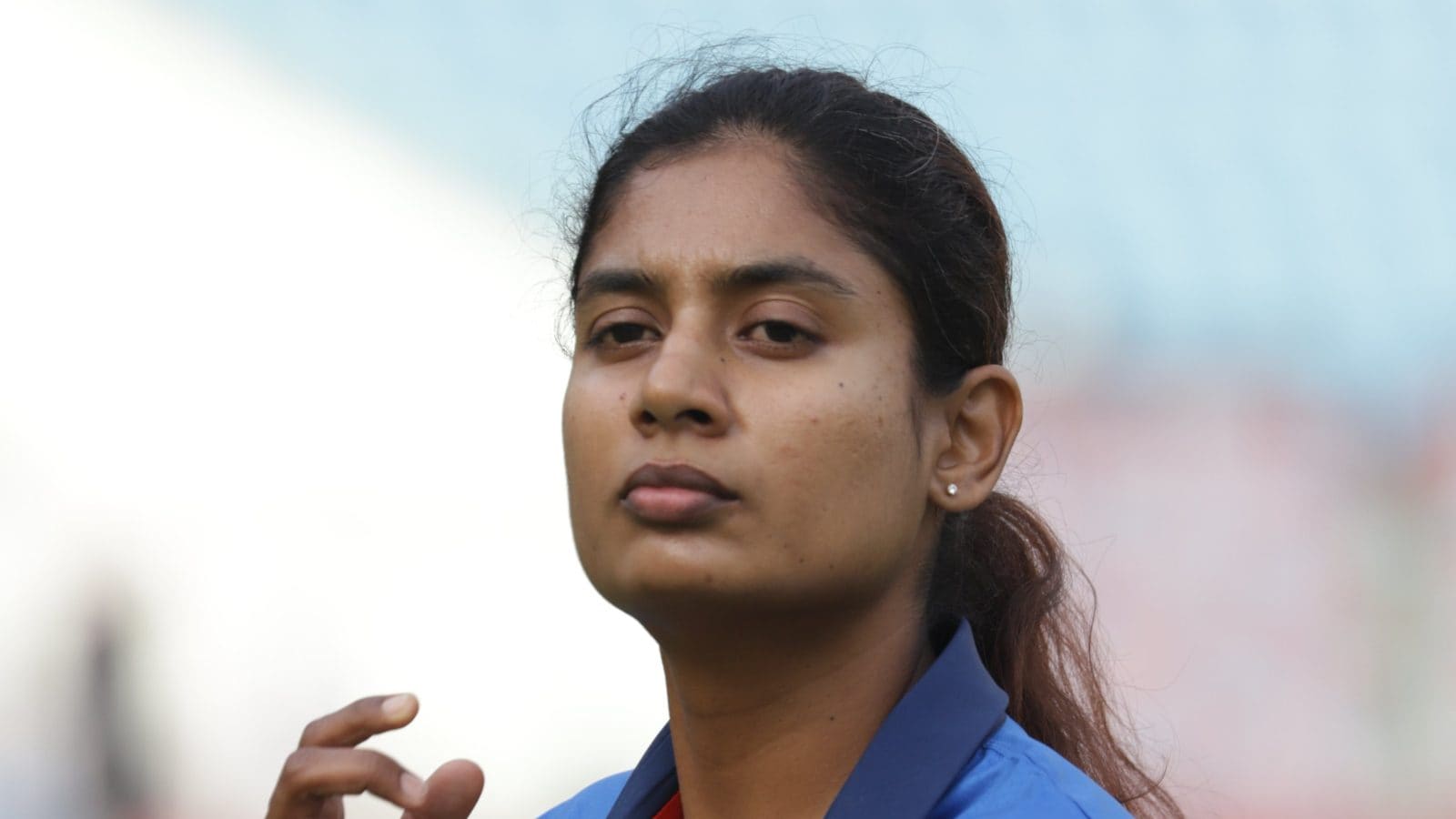
Featured Video
